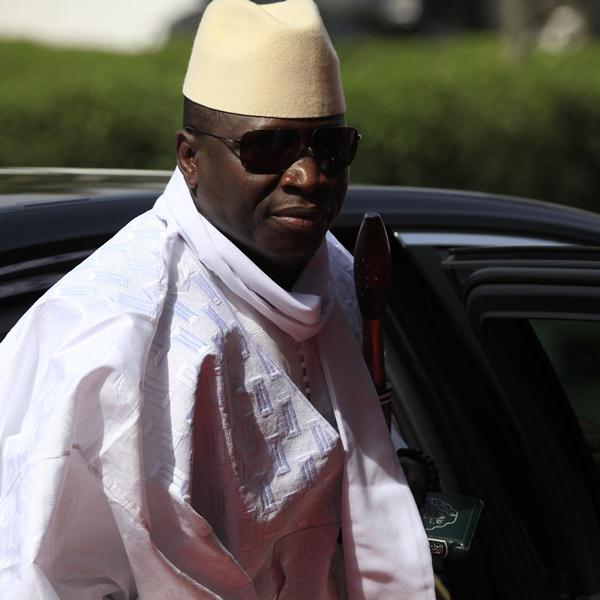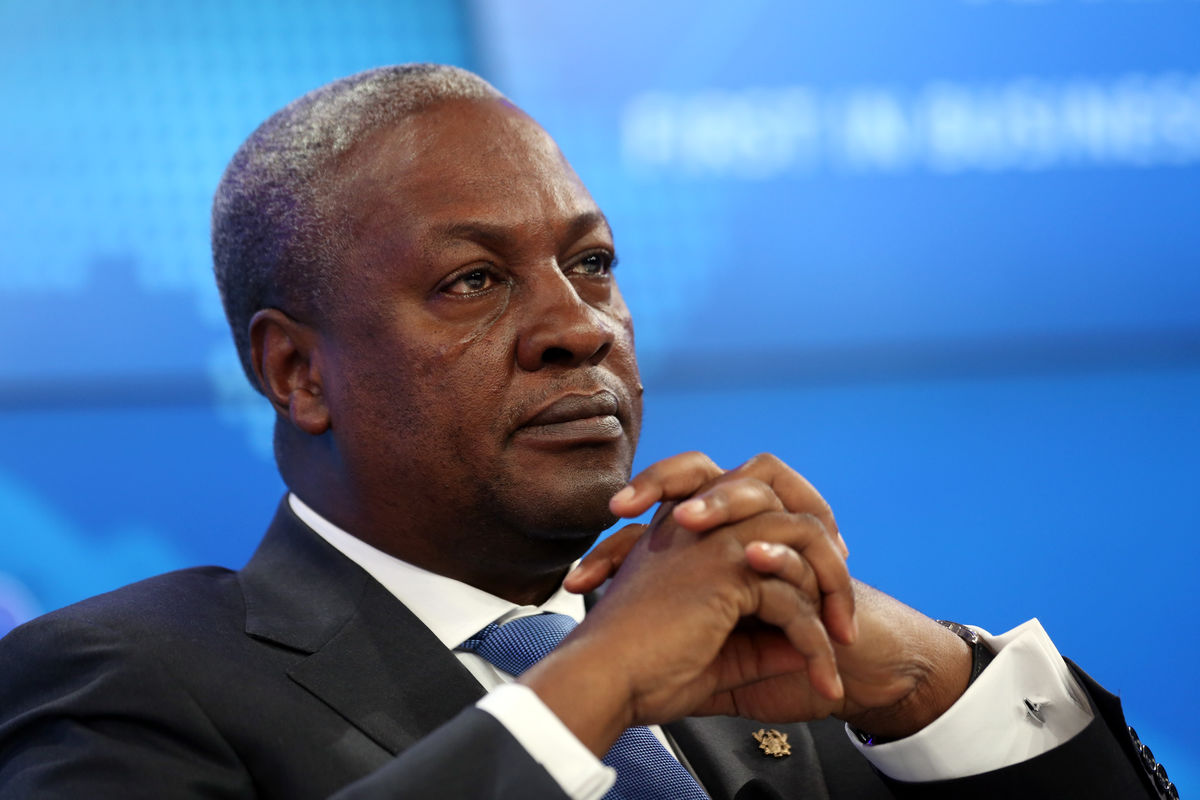
Ehis Ayere
Africa has the largest youth population in the world in the face of a very large unemployment market, and economic woes. Having a youth-focused empowerment programmes and organisation, supporting and investing in the continent’s young people, is truly strategic and a very necessary step towards the emergence of a better tomorrow for Africa.
In an exclusive interview, Ms. Elizabeth Bintliff discussed the impact and successes of some of the programmes of Junior Achievement (JA) Africa, a pan-African non-profit organisation, in empowering and supporting young African people to own their own economic success. Excerpt:
Kindly us tell us about the Junior Achievement (JA) Africa?
JA (Junior Achievement) Africa is a member of JA Worldwide, one of the largest global, non-profit organizations dedicated to empowering young people to own their economic success. JA programs focus on the areas of financial literacy, work readiness and entrepreneurship and provide experiential learning opportunities for young people to prepare for their professional lives in the 21st century. Throughout its 30-year history in Africa, JA has successfully developed programs that build entrepreneurial skills through real-world business experiences.
In Sub-Saharan Africa, JA is focused on adapting our curricula and delivery mechanisms to meet the needs of the millions of out-of-school and un/underemployed youth (typically between the ages of 15-35) and enabling them to become economically self-reliant by tapping into varied fields of interest from STEM to agro-entrepreneurship.
JA’s unique approach allows volunteers from the community to deliver our curriculum while sharing their experiences with students. Professionals volunteer in the classroom transforming the key concepts lessons into practical lessons that build student knowledge and confidence, showing them they can make a difference in the world.
Junior Achievement (JA) Africa as Pan-African youth organization is truly strategic to empowering the continent’s young people with entrepreneurial skills and support to engender growth and development in the country. How impactful have been Junior Achievement to the development of the continent?
Our focus is truly on youth and on closing the unemployment gap as well as the challenge of underemployment by building skills and employability. JA’s programs are about giving options for youth so that they are better prepared for their futures either as employees who add value to their employers or as entrepreneurs who create jobs for themselves and others.
JA Africa operates in 14 countries in sub-Saharan Africa: Botswana, Burkina Faso, Senegal, Gabon, Ghana, Kenya, Nigeria, Mauritius, Uganda, Tanzania, Swaziland, South Africa, Zambia and Zimbabwe. Last year alone we reached over 200,000 young people across those countries. We can talk about the impact of our work in numbers, but the real impact stories are in the anecdotal evidence which our alumni tell us; about the difference that an internship we trained them for and connected them to made a big difference in their lives, or how a leadership camp they participated in empowered them, or how they learned to write their CV and interview for a job they got; thanks to JA, made a difference in their lives. That, to us, is real impact.
JA programs show students the value of an education, bridge the gap of what they are learning in the classroom with the real world, and equip them with the skills and tools they need to be more successful their future careers.
JA works with and in local schools delivering curricula in those areas. An important component of our approach is corporate volunteerism, which enables business professionals share experience working with young people; coaching and mentoring them on their path to success. From enterprise creation to job shadows to leadership camps, innovation camps, career campaigns and STEM (Science, Technology, Maths and Engineering) programs, Africa’s youth are able to gain a greater understanding of life in the professional world from the adults who live in it.
Through the Company and ITS TYME programs, participants were taught life skills and basic business and entrepreneurship education and skills to organize and operate an actual business successfully. The programs also developed team spirit, managerial skills and aptitude of the participants in terms of their creativity and organization. Participants learnt how to form a team to oversee the management of the enterprise, how to raise capital through savings schemes and by selling shares, how to write a business plan and keep strong records, how to decide on a product or service through appropriate market research, costing for profitability, making sales and marketing, and building a socially responsible operation. In Kenya, 225 of the 900 students reached, had the opportunity to further develop their employability skills through participation in Job Shadows hosted by various corporate partners, including Citi Kenya, which hosted 20 students.
JA Africa programs help prepare young people for the real world by showing them how to generate wealth and effectively manage it, how to create jobs for themselves and others which make their communities more prosperous, and how to get and keep jobs.
Junior Achievement Africa maintains an active vision on how we can have a positive impact on the lives of more students – guided by our core values, top of which is a belief in the boundless potential of young people. We also have deep conviction in the educational and motivational impact of relevant, hands-on learning.
Our programs prepare students to proactively manage their finances, become entrepreneurs, and develop skills that will be recognized and valuable in a global workforce.
This year, JA Africa reached 233,228 students and recruited 2,734 volunteers who taught our programs in over 2,000 schools.
Apart from the Regional Company of the Year competition, organized annually to celebrate the achievements of JA Company students in Sub-Saharan Africa, does the Junior Achievement (JA) Africa have other Africa regional programmes?
JA Africa has a number of regional programs. Taking a regional approach to programs not only broadens our reach it also allows us to test the impact of our work and the validity of our model across geographies. It helps us learn the nuance of our programs in different contexts. One of its most successful programs has been the JA Company Program®, which is implemented worldwide across all 120+ countries where JA works. The program has reached over 45,000 young people in Africa alone. In this program, young students get to start a company during the beginning of the academic year and run it from capitalization to liquidation at the end of the school year. It is a hands-on entrepreneurship program which allows students to experience starting and running a business. They come up with a business idea, sells shares to their classmates, teachers, parents and other ‘investors,’ run the company throughout the year. It helps them get a real feel for business, and practice handling issues like human resource problems, production, customer service, marketing, etc. The student ‘managers’ report to their stakeholders and board hopefully make a profit by the end of the year.
For out of school youth, JA has a similar program. It’s called ITS TYME. It stands for Immersion Training Strategy Targeting Young Marginalized Entrepreneurs. These are young people who are in Africa’s carparks, slums, streets, and in the fringes of the economy. They are your carpenters, plumbers, hawkers, mechanics, etc. They often have the vocational training but seldom the business training to be profitable.
Last year one of the winning companies at the Company of the Year competition was a small Kenyan company called Best Start, which was trained through ITS TYME. Best Start is a business that sells wholesome, nutritious food at a low price to low-income earners in the streets of Nairobi. Its target market is the maids, drivers, car washers, rubbish collectors, etc., who they believe power Nairobi’s economy. They believe that those people too deserve to eat well, and at JA Africa we are proud to be a part of their journey and we believe in them too.
In the last one year, what has been the impact of the programmes in Africa?
Last year alone JA Africa reached over 200,000 youth through its programs. In 2015-2016, 8 JA Africa member nations – Gabon, Kenya, Nigeria, Senegal, South Africa, Tanzania, Uganda and Zambia – received funding to deliver the Company Program and ITS TYME Program to at least 4015 young people in and out of school. In this grant year, we surpassed our target reach, by a little over 5%, reaching a total of 4224 young people (3330 secondary school students and 894 out of school youth) across 107 schools in the eight countries. 83% and 73% of the participants demonstrated financial knowledge and skills, and entrepreneurship and employability skills respectively. 80% changed and maintained changes to their financial behaviour and over half (i.e. 2308) built up their financial assets. 86% of the latter preserved the financial assets they had built up. 127 enterprises were set up by the in-school participants and liquidated at the end of the Company program, while the out of school youth participants in Tanzania and Uganda accounted for the creation of 69 businesses, which continue to run to support their livelihoods, and 95 new jobs.
That was significant for us, but it pales in comparison to the need in Africa. So we would like to grow. We want to see our programs implemented at a scale that it reaches critical mass and become a movement. Or informs policy. Real success would be seeing things like entrepreneurship training built into the curricula of our countries. It is starting to happen, but the progress is slow.
The prospect of youth employment has changed. We need to equip and prepare our youth not just to look for jobs when they leave school but to create those jobs themselves.
How do you secure funding for your programmes?
JA Africa is primarily funded by the private sector. Because our origin or founding is rooted in the private sector we have historically enjoyed support from there. Since a lot of our work is about connecting young people to the world of work we naturally maintain that connectedness to corporations. A high percentage of our revenue comes from corporate social responsibility funding, or partnerships with corporations that allow us to implement their CSR programs. However, we are increasingly diversifying our funding base and leveraging the support we have from the private sector to access other funds that can also help broaden and deepen our impact.
Do you enjoy the support of any African government?
JA Africa’s strategy is to enhance the work of government and as such we work closely with governments. Because we work primarily in schools we have to work in partnership with school systems and school administrators in most countries. Therefore we put effort into ensuring that there is alignment and collaboration. The degree of support we enjoy from governments varies from country to country. As examples, in countries like Gabon, JA enjoys the trust of the government so much that we have been entrusted to manage the national business incubator, the president’s national entrepreneurship competition and a newly-created business hub for young entrepreneurs. In Zambia, JA orchestrates a job shadow program with the First Lady of the republic which allows girls from rural schools to spend a day with her and gain insight into her life as well as spending time with some of her associates. In Swaziland the Prime Minister is a patron of JA and elsewhere at minimum we have government officials participate in JA’s programs, endorse our model and act as unofficial ambassadors of JA’s brand and mission.


